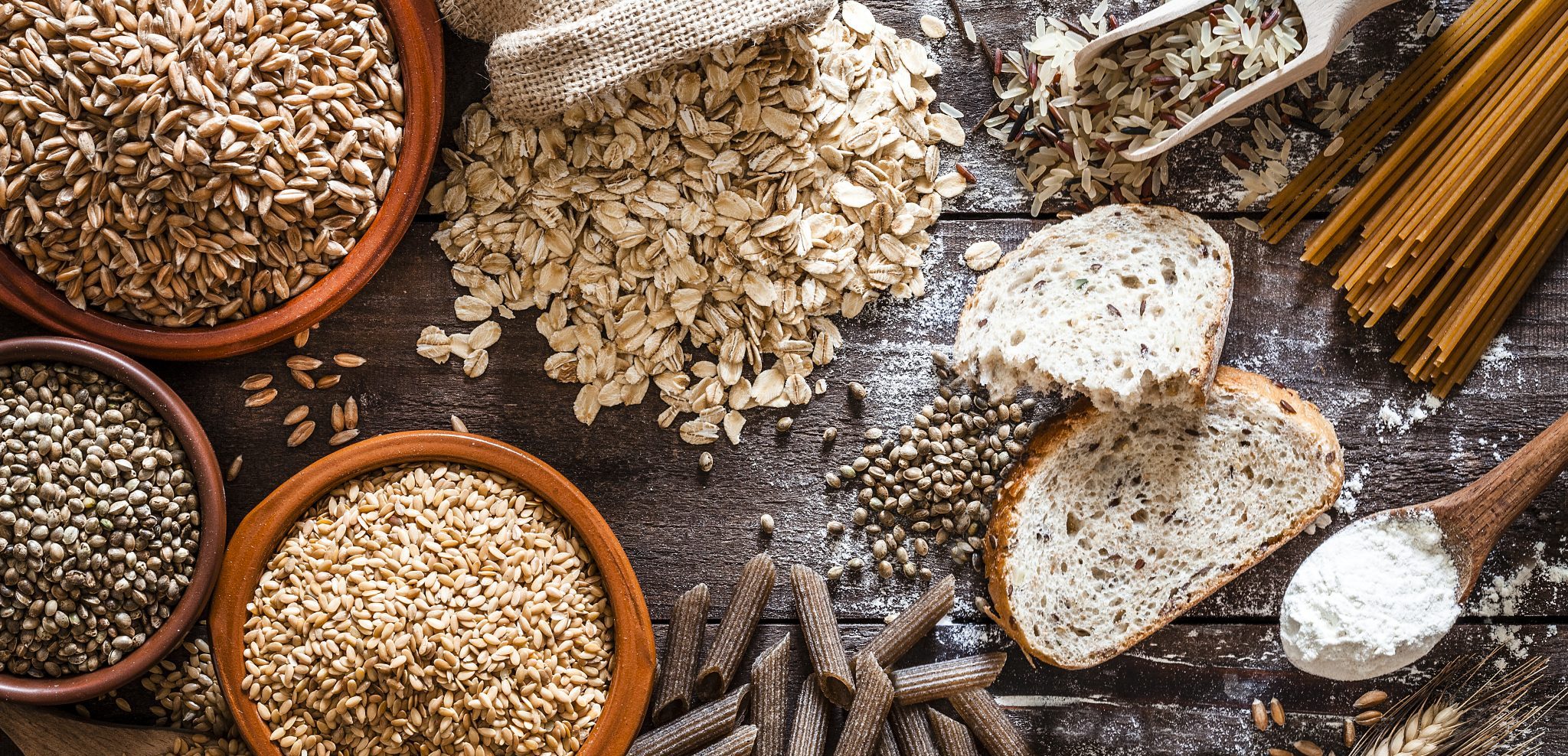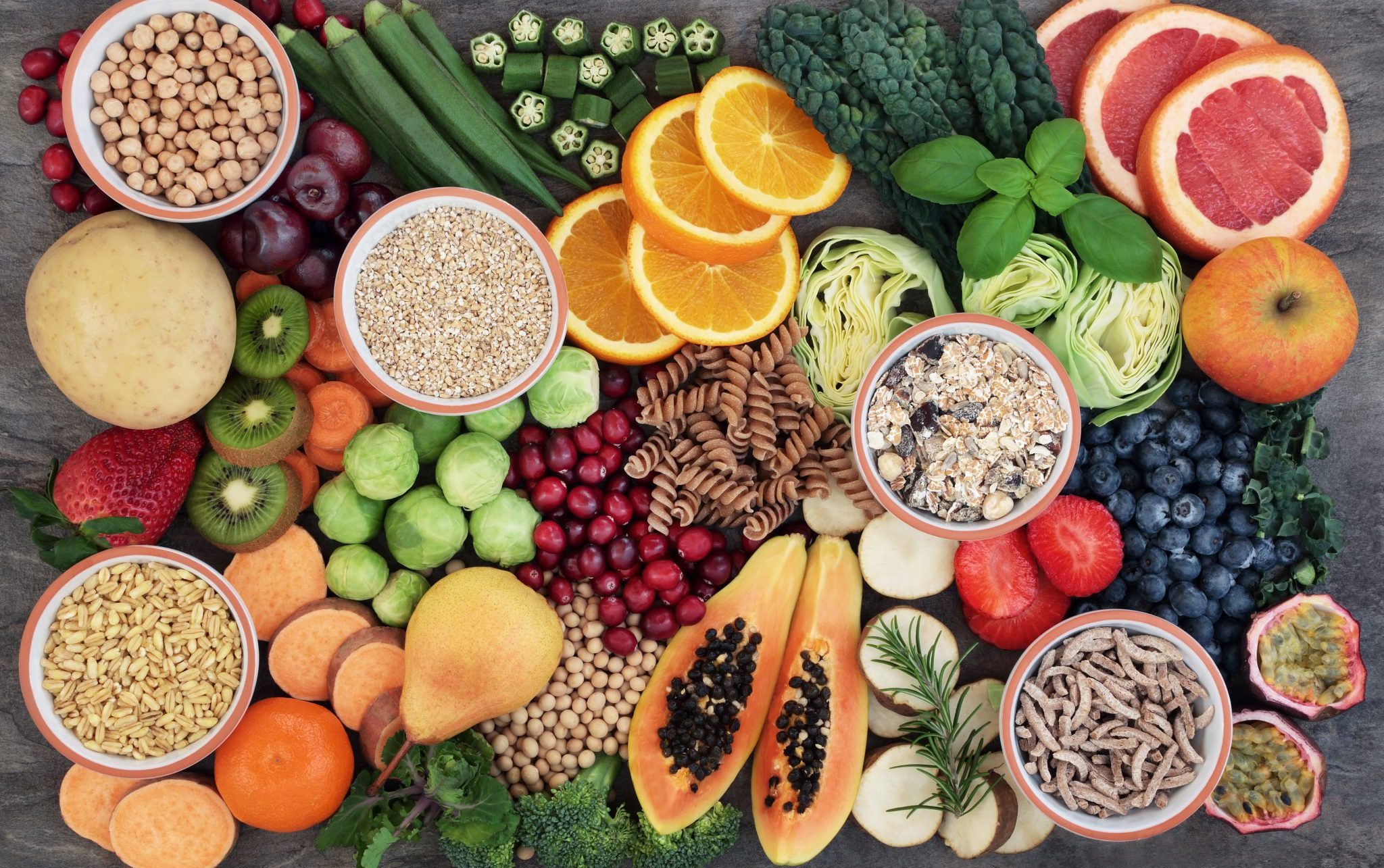Over the past decades carbohydrates earned a bad rap because they are believed to single-handedly cause weight gain. And this belief is echoed by millions of people around the globe. But in reality, carbs are no less important than protein to give your body the energy it needs to function. Along with other perks. Also, an anti-carb diet is so old-school. And here’s why.
There’s a difference between healthy and unhealthy carbs
Many of us are just not aware of the numerous health benefits of carbs. When people decide to stir clear of carbohydrates they often overlook that there are different types of carbs. They are not just chips and donuts or salty snacks and cheeseburgers. What we keep forgetting is that fresh fruits and veggies, whole-grains, brown rice, quinoa, legumes are also rich in carbs.
The ‘bad’ or 'complex' carbs include fatty, greasy, processed foods that have way too many calories. Unfortunately, this is not the only thing they are famous for. Unhealthy carbs are also extremely high in refined sugars and refined grains. But at the same time, they are very low in fiber, contain almost no nutrients at all, may be high in cholesterol and saturated fat.
Alternatively, the ‘good’ carbs contain an enormous variety of nutrients, are very high in fiber, low in cholesterol and trans fats as well as they are not overloaded with calories and don’t at all contain refined sugars.
So, as long as you stick with the basics and avoid refined sugar, vegetable oils, white flour, fatty foods, soda, fast food and other processed foods deprived of fiber, minerals and nutrients, you are good to go.
Why giving up on carbs won’t help you lose weight
For many switching to a carb-free diet isn’t so much about health as it is about pure weight loss. That’s why it may seem pretty ironic that eliminating carbs in pursuit of weight loss may have quite an opposite effect.
Here’s the deal:
- Giving up on good carbs drains your energy much faster making you less active. All because with enough carbs the body doesn’t launch protein breakdown, thus preserving it for more activity.
- Without healthy carbs your body misses out on fiber which is vital for your digestion. And gut health is the first thing that needs to be taken under control when we talk weight loss. Fiber prevents constipation, keeps your hunger satisfied for longer and regulates all metabolic processes.
- Carbs are essential for effective boosting of fat burning due to fat oxidation.
- Low-carb diets reduce appetite, so you lower your calorie intake. Leaving carbs out of the picture activates cravings. It makes us turn to unhealthy but delish foods or simply eat everything in sight to compensate for this hunger.
So, when it comes down to losing weight, carbs are a friend rather than a foe, and you’re better off including carbs to your weight loss meal plan.
What the optimal amount of carbs depends on
There is no exact number of carbs that will suit all, as it varies from individual to individual. Our carb intake fully depends on the number of factors, such as:
- age
- activity level
- body metabolism
As a rule, people who adhere to an active lifestyle can and, in fact, need to take in more carbs than people with sedentary jobs and minimum physical activity.
Carb numbers vary with age. When we’re young and super active the body needs more fuel to grow and develop. It means that fewer carbohydrates should be consumed as we grow older since many processes start to slow down.
Body metabolism also makes a difference. The more flexible your metabolic rate is the faster your body burns calories and the more carbs it can tolerate.
Why eating carbohydrates in moderation benefits your overall health
You should definitely think twice before eliminating carbs altogether, but you shouldn’t eat nothing but carbs and hope for the best either. Eating carbs in moderation primarily means restricting your intake of refined and processed foods to the maximum. And, of course, carbs are an essential part of a well-balanced approach to nutrition. It means your diet should spread its focus to proteins, carbohydrates, fats, vitamins, minerals and liquids.
The benefits of adding good carbohydrates to your meals go beyond weight loss - they enrich your body with nutrients and they are your major source of fiber. The latter one, as it’s been already mentioned, is a treat for your digestive system. Good carbs give us a hand in lowering our blood pressure and blood sugar level decreasing the risk for heart diseases and diabetes. Hence, adding them to your diet can help you become not only slimmer but also healthier.
Ultimately, it’s about seeing carbs for what they are: an essential part of a healthy diet. Eating the right amount of right carbohydrates will ensure high energy levels to get you through the day, will bring more positive emotions and the feeling of well-being to your life.




